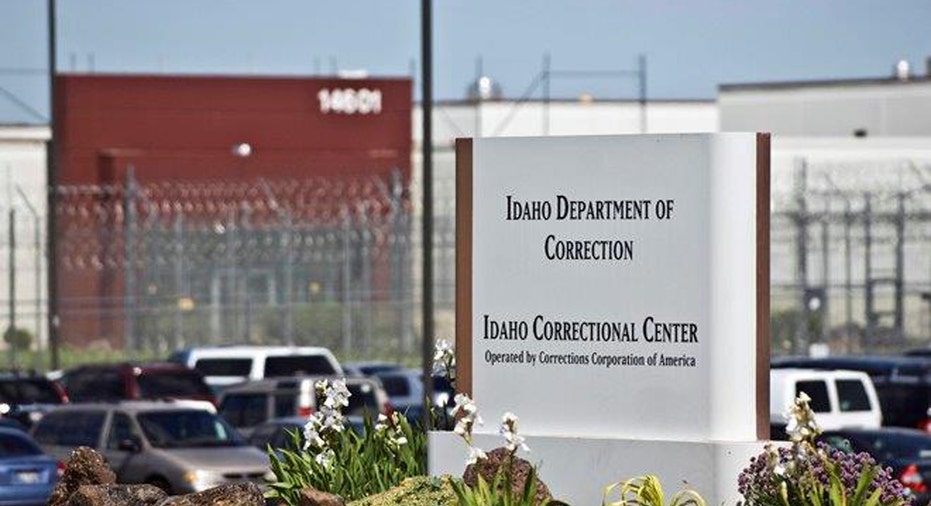Private Prison Firms Gain as Trump Plans to Crack Down on Crime, Illegal Immigration

The Trump administration’s vow to be tougher on crime and illegal immigration plus his top law enforcement officer’s endorsement of privately run prisons have sent shares of private prison management companies soaring.
The two leading firms, CoreCivic (NYSE:CXW) (formerly Corrections Corporation of America) and GEO Group (NYSE:GEO), essentially have doubled their stock prices since Election Day and are near their 52-week highs. Over the last year CoreCivic shares have jumped 19 percent, while those of GEO are up 68 percent.
Since Trump’s election, the market capitalization of GEO has roughly doubled to about $3.7 billion; the market capitalization of CoreCivic is now more than $4 billion.
Attorney General Jeff Sessions recently rolled back an Obama-era directive issued last August that called for phasing out the federal government’s use of private prison management firms at the Bureau of Prisons (BOP). Sessions is also a proponent of aggressive enforcement of drug and immigration laws and of taking a no-holds-barred approach to violent crime perpetrators, something that could increase the demand for more prison capacity.
The former Alabama lawmaker said last year’s move to end BOP contracts – which currently includes 12 private contracts for correctional centers that house about 21,000 inmates – “impaired the Bureau’s ability to meet the future needs of the federal correctional system.” The BOP has an average of 189,000 people in custody.
Private prison firms handle facilities and detainees for the BOP, the U.S. Marshals Service and the Department of Homeland Security – chiefly Immigration and Customs Enforcement (ICE).
ICE relies on private contractors to hold about 60 percent of its detainees, according to Canaccord Genuity strategist Michael Kodesch. As of November of last year (the latest available figure) ICE’s average daily detention population was 40,875. CoreCivic and GEO alone have 13,000 beds for immigrant detainees.
Trump plans to add 10,000 immigration officers and 5,000 border control agents, which could increase ICE’s average daily detention population.
Housing detained immigrants may well account for the private prison industry’s strongest prospects under the Trump administration, Canaccord Genuity strategist Michael Kodesch told Fox News.
“When you have the administration ramping up border security and detention, you’ll have higher criminal alien populations, and you’ll need those beds. It’s a positive headline for prisons,” Kodesch said.
He added, however, that Trump’s policy won’t likely mean an immediate boost to capital improvement budgets for private prisons. That’s because the companies don’t often do development based on speculative need, but rather on the procurement of a new contract and immediate demand.
Such speculation may be warranted.
“The Obama administration’s plan was to phase out private contractors over time, as opposed to cancelling these contracts” right away, said Michele Deitch, a senior lecturer at the University of Texas School of Public Affairs and an expert on private prisons. “The fact that the attorney general is saying we are planning to expand the federal prison system is very indicative of plans to step up law enforcement and expansion of sentences.”
The overall prison population has declined since Obama’s Fair Sentencing Act of 2010, which eliminated the five-year mandatory sentence for simple drug possession, among other things. But Trump’s immigration orders calling for aggressive tracking down, detention and deportation of illegal immigrants, plus those who have legal status but have committed crimes, are expected to reverse that decline and result in a need for more detention beds.
Both prison companies avoided directly commenting on Trump and Obama but expressed optimism about their future collaboration with the federal government.
“Our company welcomes the memorandum by the Attorney General reinstating the continued use of privately operated facilities, which has been long-standing practice and policy at the federal level," Pablo Paez, GEO's vice president of corporate relations said in a statement. "We believe that the decision made last August was based on a misrepresentation of the report issued by the Department of Justice, Office of Inspector General."
Private prisons have their critics, to be sure. The Office of the Inspector General issued a critical report last year of privately run federal facilities. When she was expected to win the election last year, Hillary Clinton expressed a commitment to ending private prisons and immigrant detention, sending shares of companies that depend on federal clients plummeting.
Others say private contractors are better positioned to run jails and detention center.
“Private facilities are dedicated ICE detention centers that have things as simple as air conditioning…they also has health screenings and processing abilities for these populations,” Kodesh said.
Click here for more reporting from Victoria Craig and Liz Llorente.



















